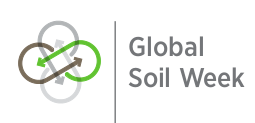 23 April 2015: In his Chairman’s Conclusions to the 3rd Global Soil Week, Klaus Töpfer, Executive Director of the Institute for Advanced Sustainability Studies (IASS) Potsdam, which hosts the annual event, highlights six areas of “emerging consensus” that can help in raising the profile of “the forgotten resource, soil” on the global political agenda and ensure that soil stakeholders “engage on an equal footing with partners in the sustainability agenda.”
23 April 2015: In his Chairman’s Conclusions to the 3rd Global Soil Week, Klaus Töpfer, Executive Director of the Institute for Advanced Sustainability Studies (IASS) Potsdam, which hosts the annual event, highlights six areas of “emerging consensus” that can help in raising the profile of “the forgotten resource, soil” on the global political agenda and ensure that soil stakeholders “engage on an equal footing with partners in the sustainability agenda.”
Töpfer characterizes this emerging consensus as being based on several interrelated issues in the interface between soil protection, sustainable land management (SLM) and sustainable development, notably that: in human time frames, soils are a non-renewable resource; soils are under ever-increasing pressure from competing demands, which often result in rapid degradation and loss; the resulting scarcities are often exacerbated by prohibiting and dispossessing people from access to land and fertile soils; and sustainable soil management and responsible land governance have great potential as one of the corner stones of transformations towards sustainability. He further notes the broad-based recognition that our knowledge advancements are moving our approaches ‘from silos to systems’ thinking, and that there is a need to link short-term action with a long-term strategy to build up resilience.
The six issues highlighted in the Chairman’s Conclusions note that: sustainable soil and land management contribute to achieving several of the proposed Sustainable Development Goals (SDGs), such as food security, land degradation neutrality and an ambitious climate and biodiversity agenda; the SDGs and climate “agendas” would “benefit from being thought and worked upon together” and soils can contribute to solutions for both; investments in soil rehabilitation result in multiple benefits, from food security to the mitigation of and adaptation to climate change; soil protection and soil rehabilitation policies need to be based on a human rights framework principally emphasizing land rights for marginal and vulnerable groups in society; a focus on protecting soils by investing in a holistic approach to sustainable land management helps address the need for coherent approaches in implementing the SDGs; the transformational potential of the SDGs requires institutions and processes at the national level that will “allow a public debate on the post-2015 development agenda;” and there is need to build on the diversity of available knowledge to bridge gaps between scientific knowledge and societal decision-making in identifying responses to the pressing challenges of soil and land degradation.
Concluding that “giving marginalized voices an opportunity to speak up and potentially influence policy processes on soil and land is an equally demanding task,” Töpfer stresses that to achieve change will require overcoming “vested interests” and calls for a broad alliance of different stakeholder groups represented at the Global Soil Week. He further notes that the latest Global Soil Week has shown “its great potential in facilitating this much needed exchange between these different stakeholder groups” and lauds the contribution made by the International Year of Soils (IYS 2015) – coordinated by the Global Soil Partnership of the Food and Agriculture Organization of the UN (FAO) – in changing perceptions of the importance of soils.
The 3rd Global Soil Week was convened by IASS and its partners from 21-23 April 2015 in Berlin, Germany, under the overall theme of ‘Soil. The Substance of Transformation.’ More than 600 participants from 80 countries attended the event. [IASS News Story] [Full Text of Chairman’s Conclusions to the 3rd Global Soil Week] [IISD RS Coverage of the Third Global Soil Week]